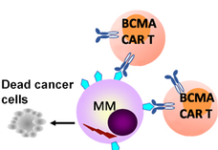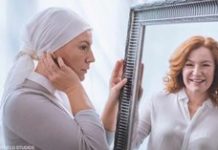
Six weeks ago, I was working a Sunday shift at Penn Medicine Roberts Proton Therapy Center when I happened to rub my neck. My heart sunk. I felt a hard lump. My first thoughts were “That’s not normal. How long had that been there?” I couldn’t remember the last time I had checked my neck. A million thoughts were running through my head about what this lump could be and how I needed to get to the doctor ASAP. I was able to get in with my primary care office the following week. They told me that because of COVID-19 I would have to come alone. Fine, I thought no big deal. I saw a physician who I had never seen before who was quick to dismiss my concerns and said he couldn’t feel anything. He suggested that I see an ENT. I knew going into that appointment that I wasn’t leaving without some blood work and an order for an ultrasound. I have always been a strong advocate for myself when it comes to my health. Since I have been in the cancer field for 10 years now, I have heard time and time again from my cancer patients about physicians dismissing their concerns, which lead them to be diagnosed months later with a later stage cancer diagnosis. I was sure not going to let that happen to me. I stood my ground and walked out of there with an ultrasound and blood work order in hand.
About a week later I had my ultrasound appointment. I was informed that I was not allowed to have anyone with me. As I lay there having my ultrasound done, I looked over at the screen and said to the ultrasound technician “Is that the lump?” She said yes, it is. So many thoughts were racing through my mind. Was it a lymph node or a mass? Was it benign or malignant? This must be how my cancer patients feel. The next day I called and made an ENT appointment. I was lucky to get an appointment the following week after my ultrasound. Before my appointment, I got another phone call that I needed to attend the appointment alone. Not that I wasn’t capable of handling this on my own, but I did want my husband to come. I mean we were dealing with a potential cancer diagnosis that was going to shift “Our” whole lives.
The following week I went to my ENT appointment and he ordered an MRI and a biopsy to figure out what exactly this mass was. I scheduled my MRI and biopsy, which were a week apart from each other. Once again, I had to attend those alone. The biopsy was difficult because I was stuck 25 times between the numbing and 2 separate types of biopsies. I left radiology with so much pain and swelling. The next 5 days were the longest days of my life, waiting for the phone call with my results. I finally got the call that the mass in my neck was a non-cancerous tumor. I feel so blessed to have gotten that call. I was diagnosed with a pseudosarcoma, which is a benign type of tumor that mimics a cancerous one. This explains the rapid growth I saw with the tumor. I have met with my ENT and a dermatologist who has seen a few of these before in the lab. We are still creating a plan of action to do deal with the tumor.
Can you imagine being diagnosed with a disease or cancer during a global pandemic? For many, it is their reality. Time has not stopped for these diagnoses, but how people are emotionally, physically, and mentally affected has. Going through this whole process alone was anxiety-producing. I think about all the newly diagnosed cancer patients who are going to their appointments alone when usually they would have multiple family members there for support. We say that “no one fights alone,” but for many, that is just what is happening.
If family members are not able to attend appointments ask your provider if they are offering telemedicine appointments as an option. Some providers have been flexible in letting patients Facetime a family member during the appointment. If you need help attending your appointments, request a support person to provide assistance at your appointments.
Laura Kendrick is a Radiation Therapist at Penn Medicine in the department of Radiation Oncology for 9 years. She completed her Bachelor’s Degree in Radiation Therapy from Gwynedd-Mercy University and her Master’s Degree in Healthcare Administration from St. Joseph’s University. Laura has extensive experience in proton therapy, training of radiation therapist’s both domestic and internationally and has created multiple proton training videos for different vendors. Laura has been with Oncolink since 2017, but joined part-time in 2020 as Global Education Coordinator and is currently developing virtual reality training modules to train radiation therapist around the world.






